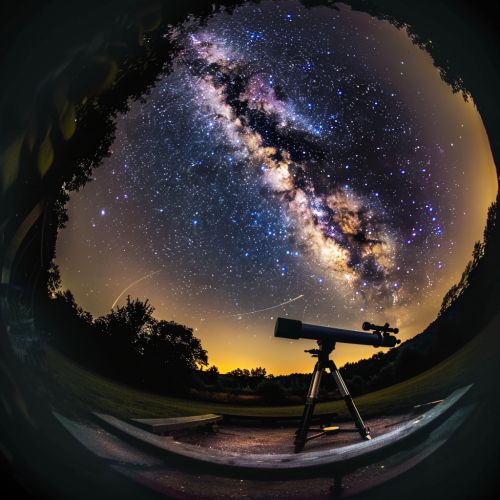Space science
Overview
Space science is a branch of scientific study that involves the exploration and understanding of celestial bodies and phenomena beyond the Earth's atmosphere. This field encompasses various disciplines, including astronomy, astrophysics, cosmology, and planetary science, among others. Space science aims to answer fundamental questions about the universe, its origins, and its future.


History
The history of space science dates back to ancient civilizations that observed celestial bodies and their movements. Over time, advancements in technology, such as the invention of the telescope, allowed for more detailed exploration and understanding of the universe. The 20th century marked a significant period in space science with the advent of space exploration, which has since led to numerous discoveries about our solar system and beyond.
Disciplines
Space science is a multidisciplinary field, encompassing several specialized areas of study. These include:
Astronomy
Astronomy is the study of celestial objects, such as stars, planets, and galaxies. It involves observing and interpreting data about these bodies to understand their composition, behavior, and evolution.
Astrophysics
Astrophysics applies the principles of physics to the study of the universe. It seeks to explain the physical properties and processes of celestial bodies and phenomena, from the behavior of stars to the nature of dark matter and dark energy.
Cosmology
Cosmology is the study of the universe as a whole, including its origins, evolution, and eventual fate. It involves theories such as the Big Bang theory and the concept of an expanding universe.
Planetary Science
Planetary science focuses on the study of planets, moons, asteroids, and other bodies within our solar system. It involves understanding their formation, geology, atmospheres, and potential for life.
Current Research and Discoveries
Space science continues to evolve with ongoing research and discoveries. Current areas of focus include the search for extraterrestrial life, the study of exoplanets, the exploration of Mars, and the investigation of dark matter and dark energy. These efforts are facilitated by space missions, telescopes, and other technological advancements.
Future Directions
The future of space science holds exciting possibilities. With advancements in technology and increased interest in space exploration, scientists are poised to make significant strides in understanding the universe. Future directions may include manned missions to Mars, the discovery of life beyond Earth, and the unraveling of the mysteries of dark matter and dark energy.
